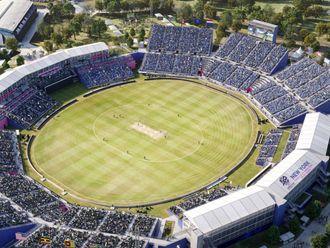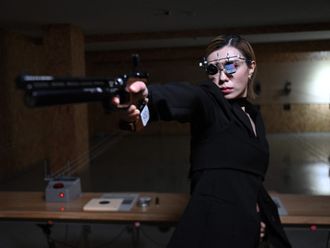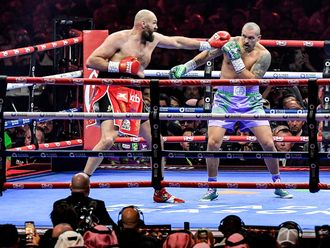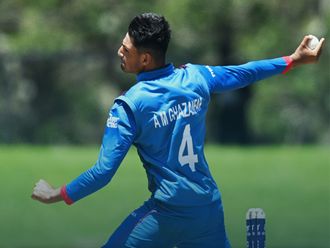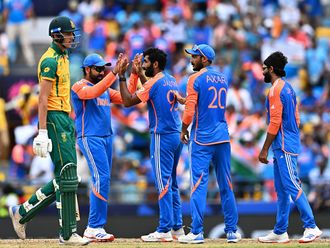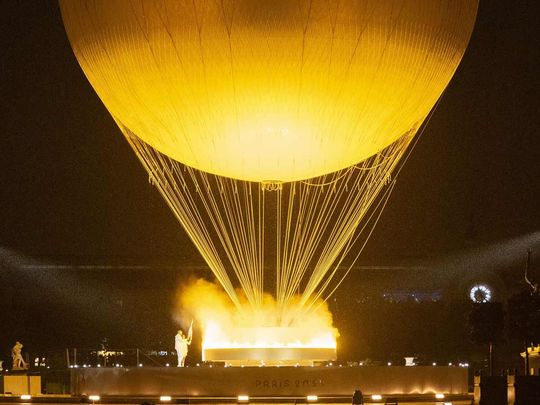
Paris: Thousands of Olympic competitors cruised down the River Seine in a spectacular opening ceremony for the Paris Games on Friday that celebrated French history and culture to the delight of a crowd undeterred by persistent rain.
For the first time in Olympic history, the opening ceremony took place outside the main stadium with up to 7,000 athletes parading down the Seine past the historic monuments of the French capital.
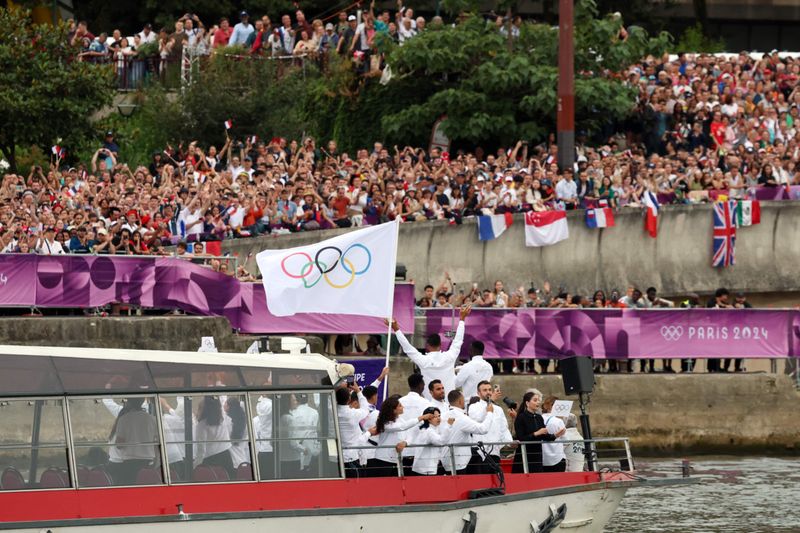
In an ambitious, high-risk departure from past opening ceremonies, the athletes sailed in an armada of 85 boats instead of making the traditional walk around a running track.
Some 300,000 people watched in person from specially built stands on the river banks, and another 200,000 from overlooking balconies and apartments.
As tradition dictates, the Greek delegation had the honour of leading out the flotilla, as the cradle of the modern Olympic movement.
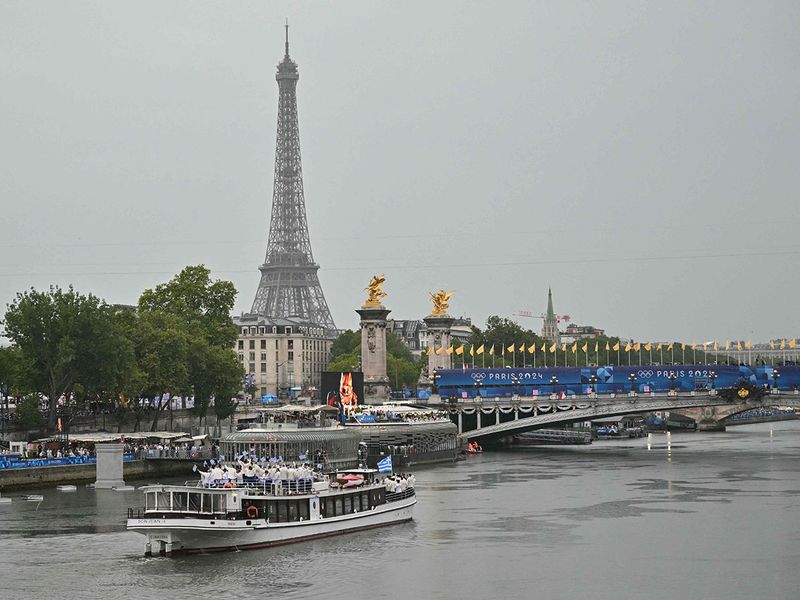
The show blended French culture and history while a pre-recorded cabaret-style segment from US pop star Lady Gaga featured prominently in the early stages of the parade.
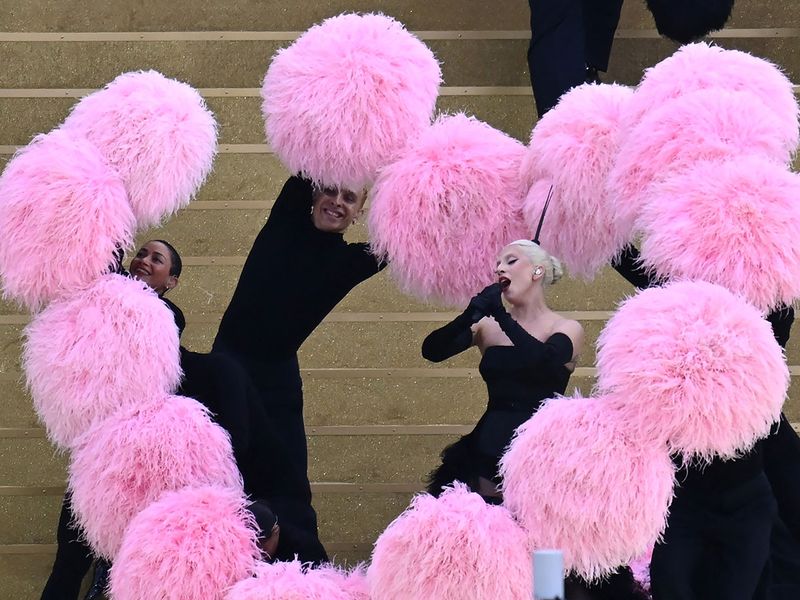
Franco-Malian R&B superstar Aya Nakamura, the most listened to French-speaking singer in the world, also sang, defying criticism from far-right activists.
Dozens of pink-skirted can-can dancers provided a stunning splash of colour on the banks of the Seine in another standout moment.
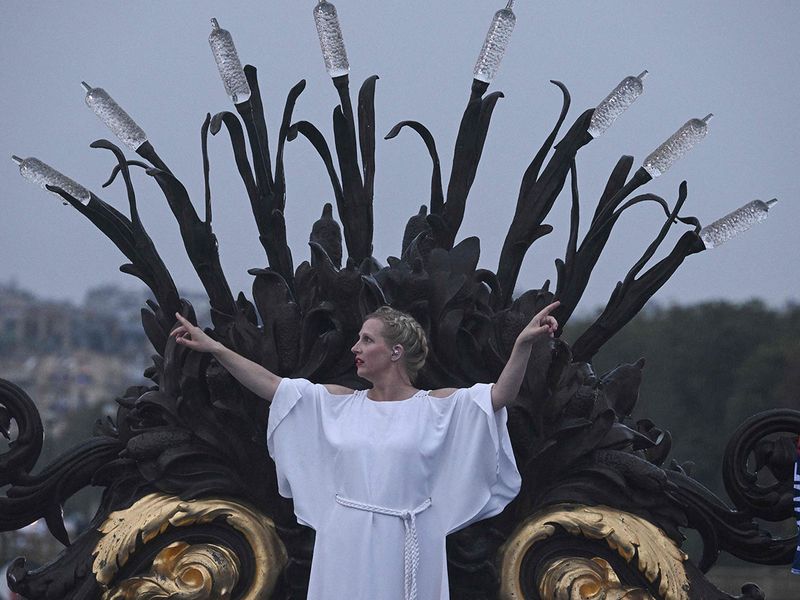
The landmarks and architecture of the City of Light featured as a backdrop both to Friday's show and will play the same role for much of the sport afterwards.
Paris's vision is for a more cost-effective and less polluting Olympics than previous editions, with competitions set to take place at historic locations around the capital.
Despite the heavy rain, and a wave of attacks which paralysed France's high-speed rail network early Friday, chief Games organiser Tony Estanguet said before the ceremony started he was confident of putting on "a great party".
Some spectators refused to let the drizzle get them down. "I've got such an adrenaline rush. It's very exciting," said Selene Martinez, who had travelled from Mexico for the ceremony.
Weekend rail travel improves
Rail traffic in France should improve over the weekend but nonetheless will see numerous cancellations and delays following arson attacks on infrastructure of the high speed network hours before the Olympics opening ceremony, the national rail operator SNCF said on Friday.
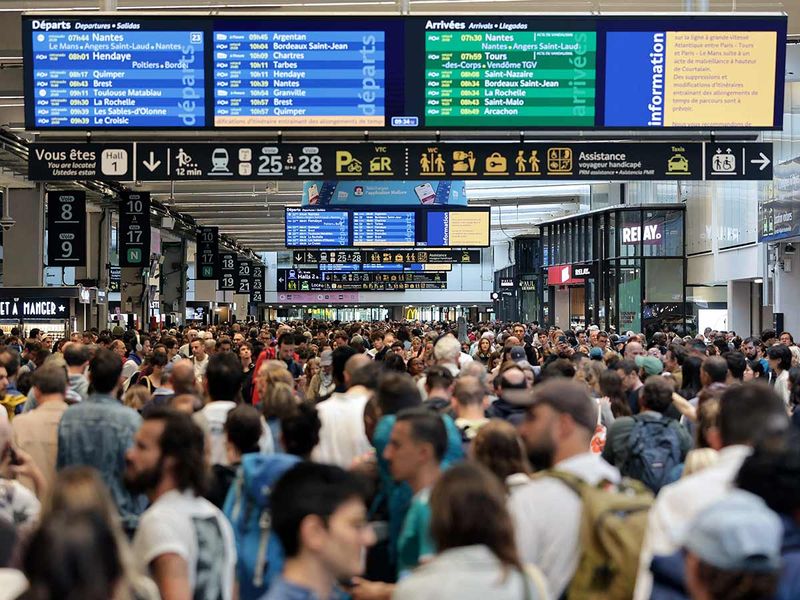
SNCF emphasised that "all participants and individuals accredited" for the Games would be assured of reaching their destination.
Every two out of three high speed trains linking Paris with western and southwest France would leave as scheduled, while 80 percent of high speed trains in northern France would run, it said. However all those trains running could see delays of one to two hours as they take longer and slower routes around the affected high speed lines. Trains to eastern France should run as normal, it said.
Long queues, ticketing problems
Thousands of spectators faced long queues and ticketing problems as they arrived for the opening ceremony of the Paris Olympics along the River Seine. Many gates opened an hour late and at least one opened two hours late because staff had not been delivered scanners enabling them to check tickets.
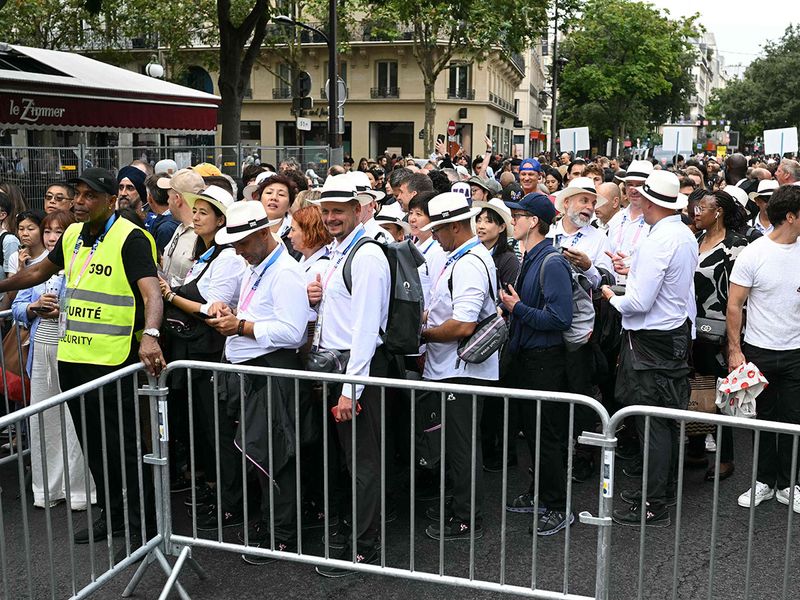
"The police have been amazing, but the organisation sucks," said Michael Ohoven, 48, a German film producer, who paid 2,700 ($2,930) euros per ticket for him and his wife.
He had been waiting an hour in front of a closed gate on the left bank of the Seine not far from the Invalides monument.
One man needed first aid after collapsing while waiting.
"I paid 1,600 euros for my ticket. Honestly, it's a disgrace," said Fabienne Guez, 57, who lives in Paris, as she waited for information.
Rains threaten opening ceremony
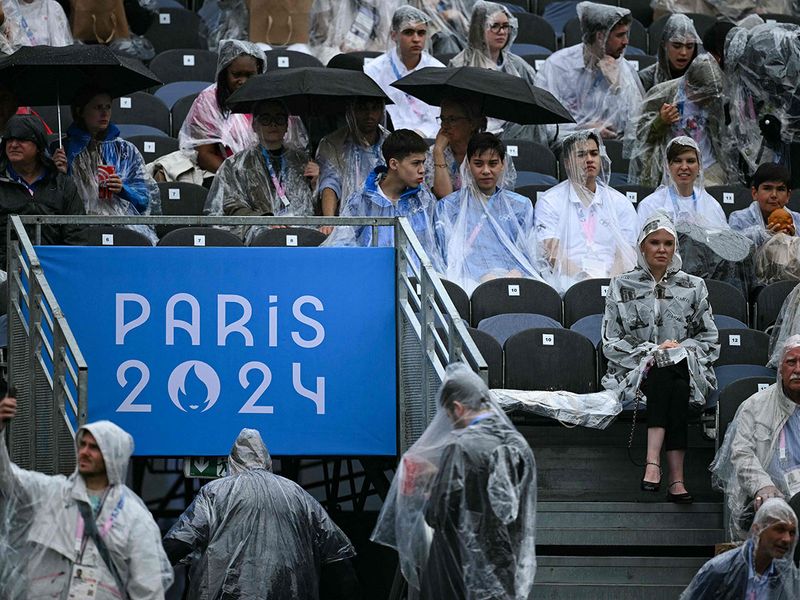
When the gates finally opened at 5:30pm - two hours before the start of the show - heavy rain began to fall.
Elsewhere, crowds built up close to the start point of the river parade around the Austerlitz bridge, with shouts of "at last!" when people were allowed through one hour later than expected.
Other long queues were visible close to the Louvre in central Paris. The ceremony is a huge logistical challenge with around 100,000 people set to be seated on the lower banks and bridges over the river and another 200,000 with free tickets on the upper banks.
Hunt for culprits
French security forces are on their highest alert to prevent terror attacks spoiling the start of the first Olympics in Paris in 100 years, while acts of sabotage from hostile foreign powers were also a known risk.
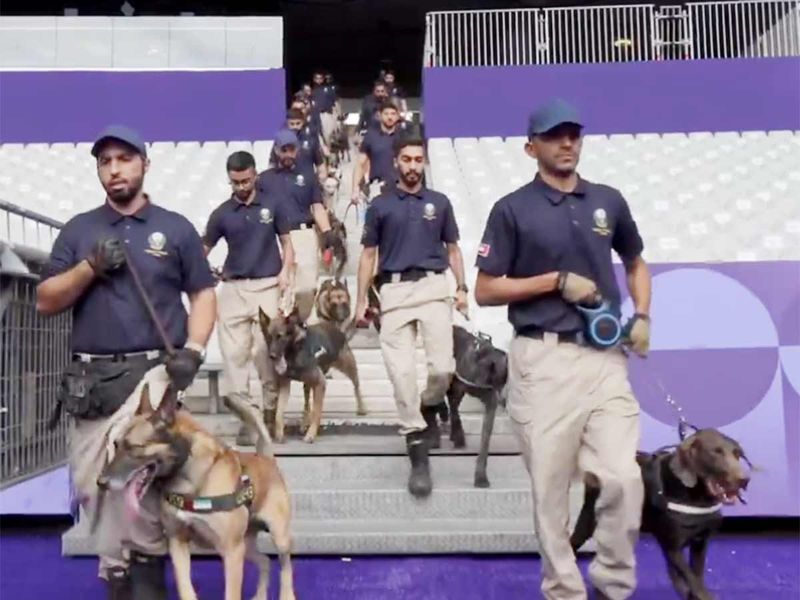
French officials refused to comment on the identity of those responsible for the rail sabotage who appear to have had a sophisticated understanding of the network. Far-left French anarchists have a history of targeting the train network with arson attacks.
Suspicions might also fall on Russia, which French President Emmanuel Macron has said in the past was planning to target the Games. Police arrested a Russian man this week in Paris who was suspected of "organising events likely to lead to destabilisation during the Olympic Games".
Security blanket
Compared to the Covid-blighted 2020 Tokyo Olympics, which were delayed by a year and opened in an empty stadium, the Paris opening ceremony will take place in front of 300,000 ticketed spectators and many more from overlooking buildings.
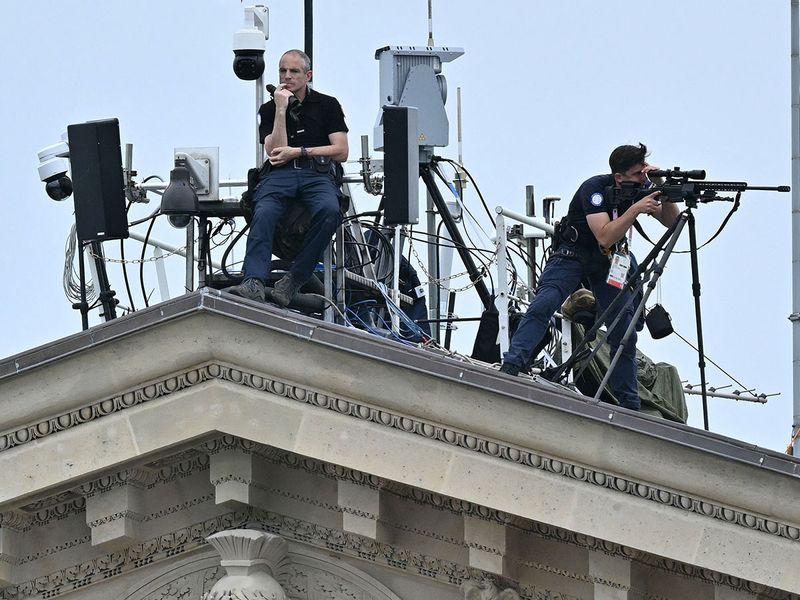
It will be the first time a Summer Olympics has opened outside the main athletics stadium, a decision fraught with danger at a time when France is on its highest alert for terrorism.
Long queues formed at access points along the Seine around four hours before the start of the parade. After passing scanners and checkpoints, the first arrivals discovered the numerous floating stages installed in the river channel, bridges that have been festooned with flags and the pink-and-purple colours of the Games.
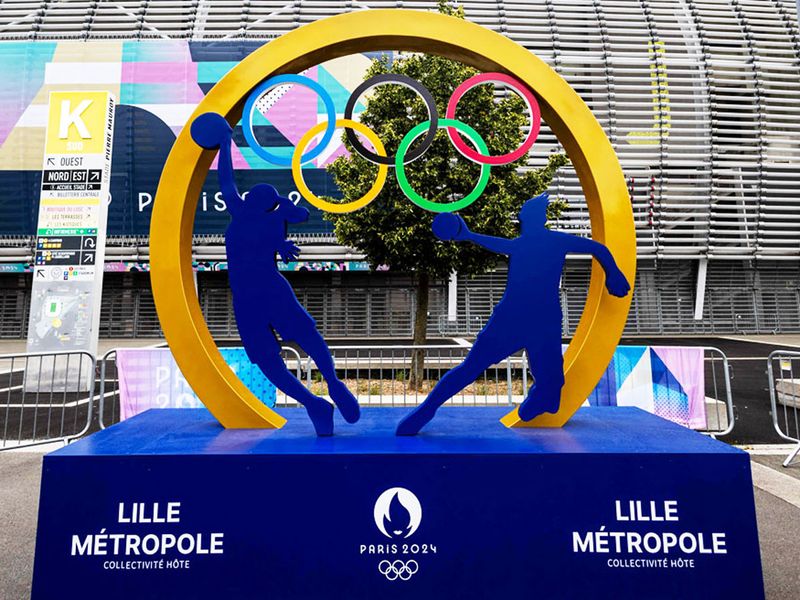
A huge security perimeter has been erected along both banks of the Seine, guarded around the clock by some of the 45,000 police and paramilitary officers who will be on duty on Friday evening. Another 10,000 soldiers are set to add to the security blanket along with 22,000 private security guards.
Police snipers are set to be positioned on high points along the river, which is overlooked by hundreds of buildings.



